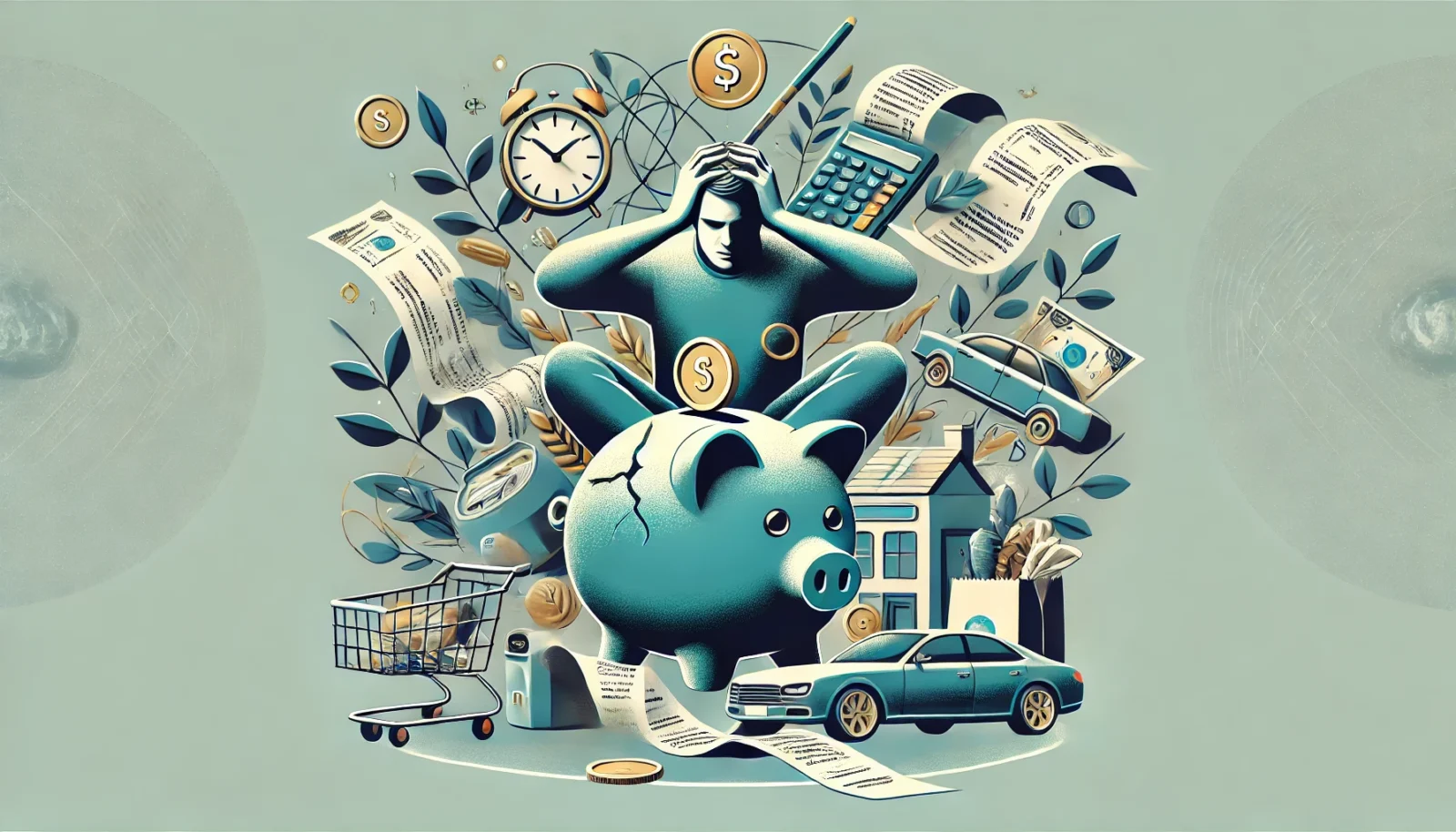5 Financial Habits That Can Destroy Your Wealth in 2025: Before we dive into these habits, let me wish you all a very happy New Year in advance! Today, let’s not talk about resolutions—those lists of promises that are often forgotten within weeks. Instead, let’s discuss what you absolutely shouldn’t do in 2025—or, for that matter, ever.
This isn’t about dry theories or abstract concepts. I want to share personal stories, vivid examples, and moments from real life that will help you connect the dots. So, let’s begin by exploring five financial habits that can stealthily erode your wealth, and how you can turn the tide.

Also Read : Quadrant Future Tek vs. Standard Glass Lining IPO: What You Need to Know (8 January 2025)
Also Read : Avoid These Mistakes While Applying for IPOs in 2025
1. The “Just-in-Case” Hoarder
Picture this: A friend of mine recently showed me her shopping haul. “Look at these clothes! I bought them in all sizes—small, medium, and large. Just in case I gain or lose weight.” I couldn’t help but laugh, but then it struck me—how often do we hoard things for scenarios that may never happen?
Whether it’s extra gadgets, multiple insurance plans, or even food that goes untouched in the pantry, the just-in-case mindset can drain your finances.
Instead, embrace minimalism. Before you buy something, pause. Ask yourself:
- Do I really need this?
- Is it solving a current problem, or am I just preparing for an imaginary scenario?
For instance, when packing for a trip, think practically. Do you need five pairs of shoes, or will two suffice? By focusing on what’s truly essential, you save money and mental space.
2. The Financial Illusionist
We all know someone who believes, “Everything will work out.” A cousin of mine, let’s call him Raj, was a perfect example. Every month, he maxed out his credit card and told himself, “I’ll figure it out next month.” Spoiler alert: He didn’t.
The illusion that financial problems will magically disappear without action is dangerous. It’s like ignoring a toothache, hoping it’ll go away, only to end up needing a root canal.
Raj’s situation spiraled when his debts snowballed. Eventually, he had to sell his car to cover the payments. If only he had taken small, consistent steps—like following the 50/30/20 rule or setting a budget—his story could have been different.
Remember, ignoring financial issues doesn’t solve them. Confront them, no matter how uncomfortable it feels.
3. Impulse Buying Under Peer Pressure
Let me share a moment that made me rethink my spending habits. Last year, I bought a fancy smartwatch because a friend had one. Did I need it? Nope. I already had a perfectly functioning watch. But I gave in to the fear of missing out (FOMO).
This is how impulsive decisions sneak in—when we compare our lives to others’. Maybe it’s a friend’s vacation photos, a colleague’s new gadget, or even a celebrity lifestyle we admire. But here’s the truth: Buying things to impress others often leads to regret.
To combat this, try the “7-day cart rule.” Add items to your online cart, but don’t buy them immediately. Revisit the cart after a week and ask yourself, “Do I still need this?” Most times, the answer will be no. This simple trick has saved me countless dollars and helped me prioritize my financial goals.
4. The Gig Economy Syndrome
The gig economy is a hot topic, especially among Gen Z and millennials. I recently met a young man who’d tried everything—Zumba classes, pet-sitting, freelance design, and even delivering food. While there’s nothing wrong with exploring options, constantly jumping between gigs without focus can harm your finances.
Stability is underrated. It might not sound glamorous, but having a steady income stream allows you to invest in your future. Whether it’s saving for a house, a family, or just peace of mind, consistency pays off.
5. Neglecting Insurance
I learned this lesson the hard way. A close family friend faced a medical emergency without health insurance. Watching them drain their savings to cover hospital bills was heartbreaking.
Life is unpredictable. Protecting yourself with life and health insurance isn’t just about financial planning; it’s about safeguarding your family’s future. Platforms like Ditto make it easy to find the right insurance plan, and their advisors can guide you without spamming you with unnecessary calls.
Final Thoughts
Your financial future isn’t built overnight. It’s shaped by the small, everyday choices you make. Whether it’s resisting the urge to buy another gadget or committing to regular savings, every step counts.
So, as you step into 2025, promise yourself one thing: invest in your growth. Upskill, learn about personal finance, and make decisions that align with your goals. Because the wealth you build today will empower the life you want tomorrow.
Let’s make this year count—not with resolutions, but with meaningful actions.






Leave a Reply